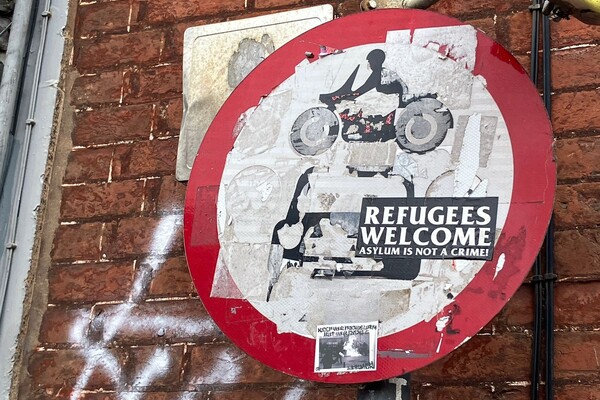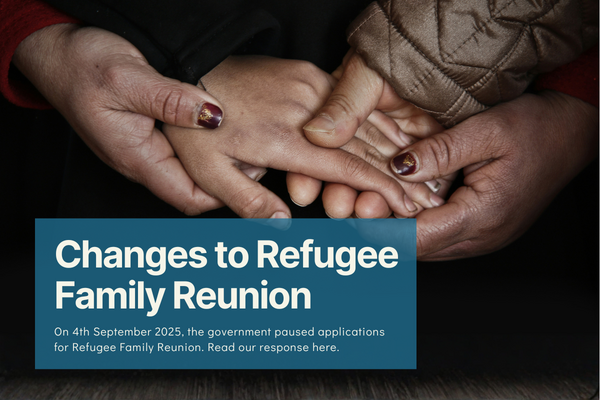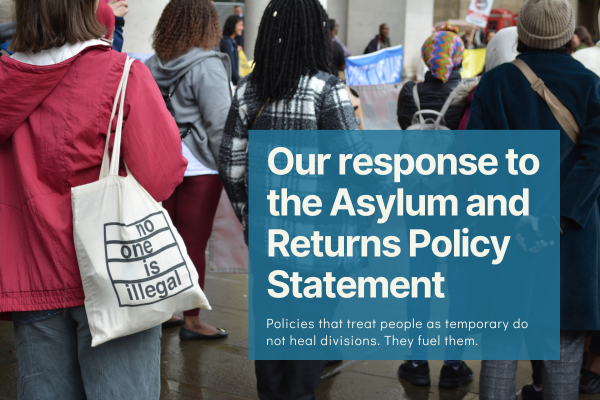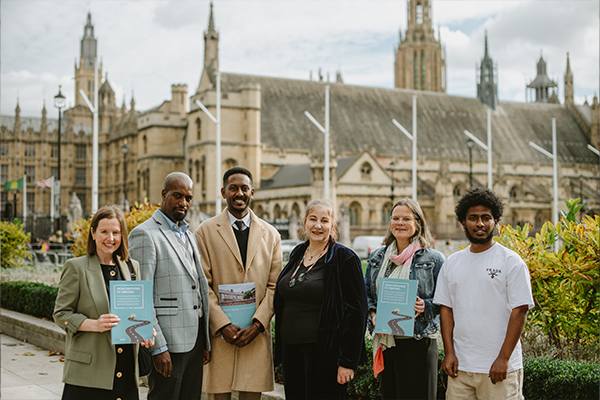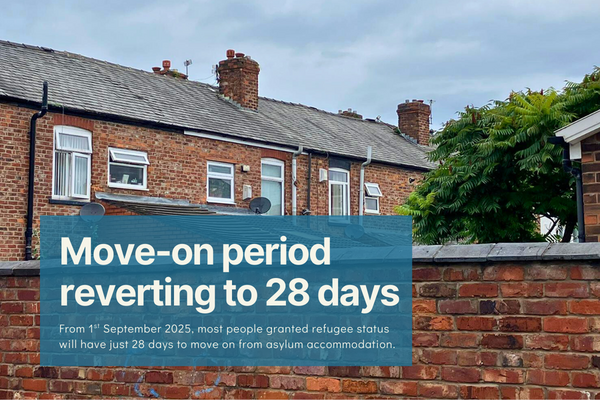Like so many other asylum and migration charities, we have become increasingly alarmed in recent months by the decimation of asylum principles, the growth of the far right and their sentiments, and the ‘protests’ outside hotels housing people seeking asylum. We are working in a volatile and hostile political landscape. In the twenty years since Boaz was founded, we have never known this scale of hostility towards our work and the people we support.
For the first time in our existence, we are having to plan for the conceivable threat that one of our houses may be targeted and we are having to assume that some of the people who we come into contact with through our work will be hostile towards what we do and the people we support. Other asylum and migration charities have also spoken of having to prepare against similar threats of violence. This is not normal.
While we know that racism and the threat of violence towards people seeking asylum and people of colour has always existed, many have shared about the exponential rise in racism and hostility in recent months. In the absence of the voice of government denouncing far right activity and open hostility towards people seeking asylum, a frankly terrifying rhetoric has filled the void.
We find ourselves in a political landscape dominated by far right sentiments that go unchallenged by the Government. The recent movement to fly Union Jacks and the crosses of St George from lampposts up and down the country is, in part at least, being organised by extreme far right activists, who have co-opted the flag. While many may see it as a symbol of national pride, it is now clearly being used by some people to intimidate and provoke fear in people of colour. Our elected government has disturbingly failed to acknowledge the sinister nature – at least in part – of the campaign (“Put them up anywhere,” the then Home Secretary, Yvette Cooper, said this week).
We and others have long argued that the threats posed by far right groups have been bolstered by a toxic political and media discourse. The denigration of people seeking asylum in the UK has not only been fuelled by the explicit racism of individuals such as Nigel Farage or Stephen Yaxley-Lennon (otherwise known as Tommy Robinson), but by successive governments who have emboldened far right groups and individuals with their own consistent inflammatory language used to describe people seeking asylum. The violence that so many of us have warned about for so long is now being played out.
It is in this context that the principles of asylum are being decimated by the Government. This week it announced a suspension to the refugee family reunion scheme, effectively closing off the only remaining ‘safe route’. After the Government’s announcement, our support workers started to receive calls from individuals who were preparing to apply to be reunited with their loved ones - frantic that the possibility was now slipping away from them. It is hard not to hear the message in such an announcement that some families and their love is regarded as less worthy or of less importance than others.
The suspension of the refugee family reunion scheme is just one of several policy changes targeting people with refugee status – a clear indication that even when individuals have been recognised as refugees their attempts to rebuild their lives in the UK will be made as hard as possible. Earlier this year we saw changes to the ‘Good Character’ guidance, stating that people who entered the UK through ‘illegal’ or ‘dangerous’ means would now usually be refused British citizenship. Furthermore, last month the Government announced that it was reverting to a 28-day move-on period for people granted refugee status, as opposed to a trialled 56-day move-on period, which has been proven to help reduce homelessness among people with refugee status. Coupled with the disdain shown towards people staying in asylum hotels and the overall hostility towards people coming to the UK and seeking asylum, we have never known a more inhospitable climate towards people in need of safety.
It is tempting in all of this to say ‘this is not who we are,’ as a country. But who we are is how we choose to act, in this moment, at this time. And this is, at least in part, who we are as a country. Some people will have known and understood this more acutely than others, before now. And some of us may only just be catching up. So what can we do?
We can continue to hold our MPs to account by writing or meeting with them; however futile that may feel at times. In the current climate, and with local elections next May, it has never been more important for our elected politicians to hear the voices of people who believe in the safety and dignity of those in need of protection. If you are part of a church, faith or community group, you can invite Boaz to come and speak to your congregation or group. You can engage in your local community; be that having a difficult conversation with somebody who may think differently to you, or using a skill you might have to welcome and show love to people, whoever they are (e.g. volunteering to teach English, volunteering in a community café or foodbank). In all of what we are witness to, we must resist the temptation to despair. For we have work to do.
This article was edited on the afternoon of Friday 5th September in light of Yvette Cooper no longer being in the position of Home Secretary.

